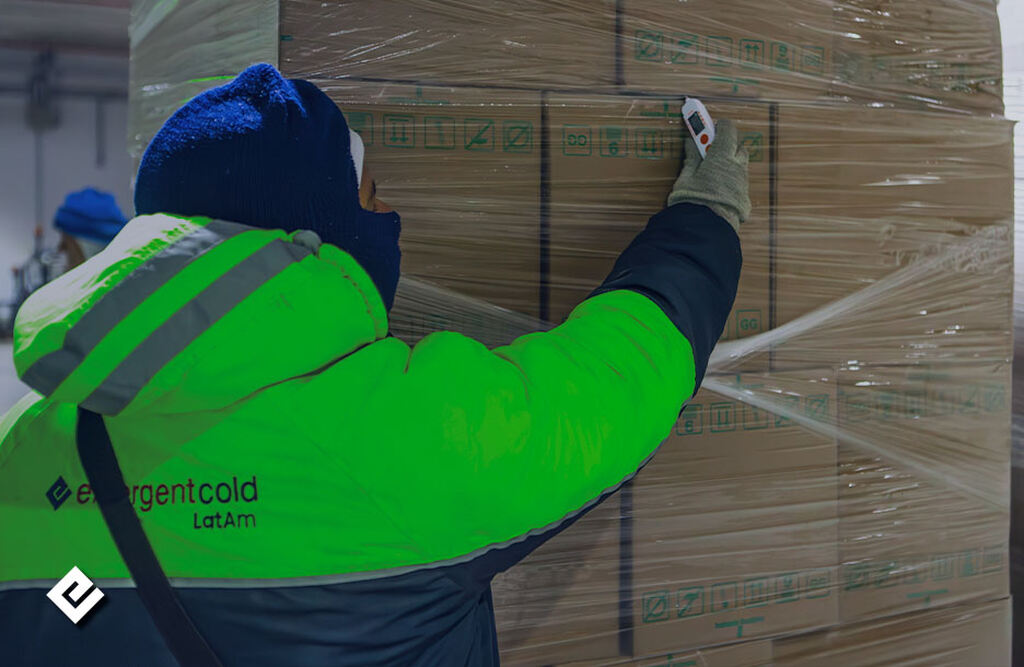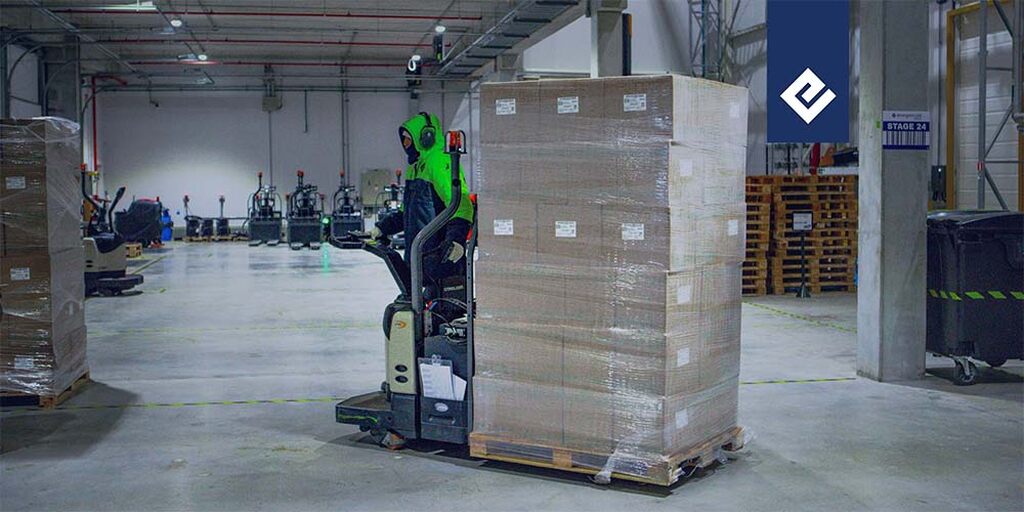Chilled cargo is an extremely delicate category of transport of perishables, which involves care with the temperature and integrity of the products throughout the whole journey.
Chilled transport requires technical precision, specialized equipment and rigorous planning to guarantee that the product arrives in perfect condition at its destination.
In this article, we shall cover the essential care in the movement of this type of cargo, highlighting the challenges and risks involved.
You will also be able to gain insights on how experienced partners, such as Emergent Cold LatAm, can help guarantee the safety and quality of the products during the logistics process.
Chilled cargo: what is it and what examples are there?
Chilled cargo refers to the perishable foods that need a specific level of humidity and temperature (-18 °C or less) to guarantee freshness, conservation and, consequently, food safety for the consumers.
Some examples of perishables are as follows:
- meats and fish;
- fruits and vegetables;
- dairy (milk, cheeses and yoghurts).
To guarantee that these foods arrive at their destination within the ideal conditions of conservation, it is essential not only for the trust of the consumers, but also for public health in general.
Transport of chilled cargo
The transport of chilled cargo requires more than just a temperature-controlled vehicle. It depends on a series of critical factors that ensure that the perishable products arrive at the destination in perfect condition.
Let’s see how this care unfolds throughout the process.
Storage in temperature-controlled distribution centers
Before being transported, the products must be stored in places at a controlled temperature (by means of cold, chilled or frozen rooms) so as to guarantee their integrity up to the time of loading.
It is important to emphasize that temperature control is one of the most critical aspects in the transport of chilled cargo. Variations in temperature, even small ones, may damage the product, impacting their quality, safety and validity directly.
Planning the transport
Good planning involves:
- definition of fast and safe routes — minimizing the travel time to avoid the products being exposed to unsuitable conditions;
- control of travel time — the transport must be efficient, respecting the time so that the foods do not pass more time than necessary in the vehicles;
- strategy of stopping points — during long journeys, control points are essential to guarantee that the load is transported in the ideal conditions and to facilitate verification of the safety;
- documented temperature control — all the temperature records during the transport are fundamental to guarantee the trackability and compliance with the regulations of each country.
Storage in the truck and suitable journeys
How the products are stored and moved in the vehicle also directly impacts their quality during the transport. During the transport of chilled cargo, it is necessary to:
- organize the load — the foods must be disposed to allow the circulation of cold air throughout the vehicle, as well as optimizing the space;
- avoid prolonged exposure to unsuitable temperatures — during loading and unloading, the cargo must not be exposed to heat for long periods, which may compromise the cold chain.
The movement must be efficient, considering the peak traffic times and the conditions of the roads to minimize the risk of delay and to guarantee the punctuality of delivery.
Maintenance of the vehicles
Preventive maintenance of the fleet is extremely important to avoid technical failure during the transport. Temperature-controlled vehicles have to be constantly inspected to guarantee that their refrigeration system is working correctly.

Challenges in the transport of chilled cargo
The transport of chilled perishable food cargo is not without its challenges. Among the principal obstacles we can list the following:
- maintenance of the cold chain — guaranteeing that the temperature is maintained throughout the whole journey is one of the biggest challenges;
- failures in the refrigeration systems — badly maintained or failing equipment may result in deterioration of the load;
- regulations and documentation — complying with the health and food safety rules, which may vary between countries, requires careful management and constant updating.
Given this, it is indispensable to have a specialized outsourced logistics service for the transport of perishable foods.
Find out about some of our success stories:
- Overcoming scarcity of containers in Peru
- From chaos to precision: the importance of the stock control with weighing in real time in foods logistics.
Find out about our specialized transport solutions for refrigerated and frozen products
We offer specialized logistics solutions for the transport of refrigerated loads and frozen perishable foods, with modern and safe infrastructure.
Our vehicles are equipped with leading edge technology to guarantee that the products are transported under ideal conditions, with monitoring in real time and preventive maintenance.
If you are looking for a reliable partner for the transport of perishable foods, we can help guarantee the safety and quality of your load.

Conclusion
The transport of chilled perishable foods cargo demands precision, technology and commitment to quality and safety.
From the logistics planning through to the constant monitoring of the temperature, each stage of the process is essential to guaranteeing that the foods arrive at their destination in the ideal conditions.
With the expertise of Emergent Cold LatAm, your company can count on an experienced and reliable partner to overcome the challenges of the transport of perishable products, maintaining the cold chain intact and guaranteeing the satisfaction of the consumer.









